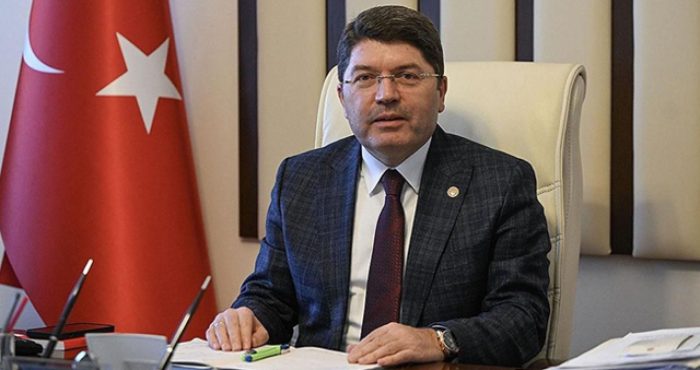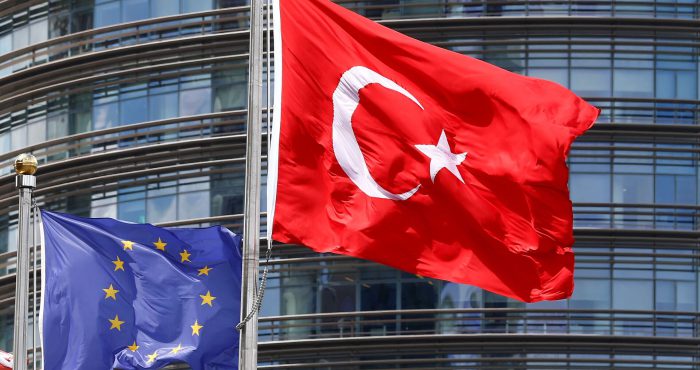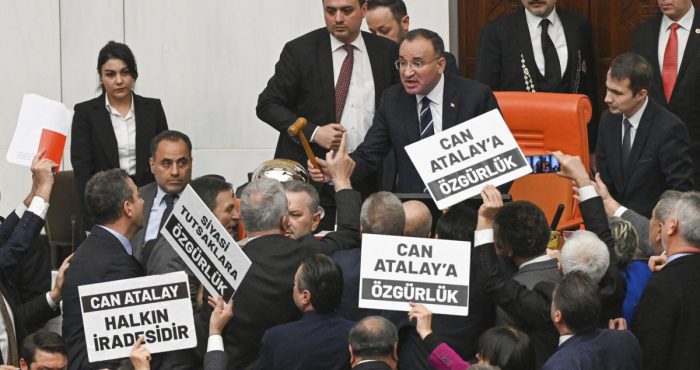In February I submitted a petition to the Supreme Election Council (YSK) requesting that it determine its principal and reserve members and complete the formal procedure for the constitution of the Council. I have now received a response to my petition from the YSK. In its response dated March 15, the Council labelled my request a “special request” and refused to respond to the issues I raised in the petition.
YSK members are avoiding fulfilling their duties, which are clearly stated in Article 79 of the Constitution and Article 5 of the Law No. 7062 on the organization and duties of the YSK, to complete the proper legal constitution of the board.
The YSK members, who have elected the president and vice-president among themselves, still have not determined which of the remaining 9 members are principal and which are reserve members.
The YSK opens its legitimacy to debate
How the YSK will be constituted, and how and by whom its powers will be exercised are clearly defined in the Constitution and the YSK Law. It is specified that 11 members elected from the Council of State and the Court of Cassation will come together and first elect a president and a vice-president among themselves. Then, 5 principal and 4 reserve members will be determined from the remaining 9 members by the drawing of lots.
By not determining the principal and reserve members and thus not properly constituting the Council the YSK members open the legitimacy of the YSK itself and the validity of its decisions to debate.
Decisions cannot be made without determining the principal and reserve members
The proper constitution of the Supreme Election Council is completed with the determination of the 4 reserve and 5 principal members following the election of the president and vice-president. The Supreme Election Council properly constituted consists of 7 principal members: 5 principal members and the president and vice-president. The YSK can make decisions on the matters specified in the Constitution and the law only after its proper constitution. The 9 members, excluding the president and vice-president, do not have the authority to act as if they were principal members of the YSK or to make decisions in the name of the YSK until it is determined whether they are principal or reserve members according to the law.
Similarly, these members do not have the right to avoid attending meetings or fulfilling other duties as if they were reserve members. The proper constitution of the YSK is incomplete until the principal and reserve members are determined. Therefore, the 9 members cannot legitimately represent the Council. Decisions made in the name of the Council while this situation persists will not be legally valid. Because none of the 9 members excluding president and vice-president are either principal or reserve members of the YSK until those roles have been determined.
Decisions made by the 9 members in limbo are null and void
The 9 members excluding the president and vice-president are in limbo between being principal or reserve members until they are determined as either according to the Constitution and the law. Until then they cannot act as either principal or reserve members.
They cannot forgo the proper constitution of the Council saying “it does not matter which of us are principal or reserve members” and make decisions as a collective of 9. They have no authority to bend the rules of the Constitution and the law, or to set rules for themselves. Until all the principal members have been determined none of them do or will have the authority to vote with the authority of permanent members.
In the event these 9 members act in the name of YSK before their determination as principal or reserve members it will constitute a usurpation of authority. It is undisputed under Turkish law that decisions taken by usurpation of authority are null and void ab initio meaning they have no legal effect from the outset.
Competency does not confer correctness
The fact that the members of the Supreme Election Council (YSK), who are senior judges of the Court of Cassation and the Council of State, does not guarantee that their decisions will be correct and legally valid. Given they have not fulfilled the clear and explicit rules of the Constitution and the YSK, even those which provide for their authority, it is only natural to be concerned that they may make inaccurate and incorrect decisions, or decide under undue influence when applying comprehensive rules in their dealing with highly contentious issues.
The fact that the YSK will make the final decision on the presidential candidacy applications, and that its decisions are not subject to judicial review, justifies the wide-ranging public concern regarding these matters. This is especially true when it comes to their acceptance or rejection of President Recep Tayyip Erdoğan’s candidacy.
Indeed, Kemal Kılıçdaroğlu, the leader of the Republican People’s Party, (CHP) expressed his distrust in the YSK’s members and decisions saying that they would decide as Erdoğan wishes. Undeterred, he expressed his desire to beat Erdogan at the polls Perhaps tellingly, when asked about Erdoğan’s eligibility for a presidential candidacy, a senior AK Party member evaded the question by saying that the YSK will make the final decision.
Clear responsibility is needed for the right decisions
The principal members who legitimately participate in the decision-making on behalf of the Supreme Election Council are legally and criminally liable for their decisions. This liability lies with the members who participated in the decision-making. The liability of the principal members arises from the Constitution and the law. While violation of the Constitution is a serious offence, usurpation of authority may not even constitute a punishable offence.
When a decision-making body’s acts cannot be made subject to judicial review, a clear definition of the decision-makers’ responsibilities is required. It is not possible to hold individuals involved in the making of erroneous and illegal decisions responsible if the responsibility of each of the decision-makers remains uncrystallised.
The principal and reserve members of the YSK must be determined in order to ascertain the validity of the decisions taken on behalf of the YSK or to identify the YSK’s members responsible for the decisions. It is not possible to hold someone liable for their decisions when their occupation of the office which enables those decisions remains undetermined.
The YSK must act in accordance with its legitimacy
The Supreme Election Council is entering a period in which it will make the most controversial decisions in its history. The members elected to the YSK must complete the procedure for its proper constitution and avoid giving rise to even the slightest doubt of its legitimacy.
The members of the Council, whose membership status is still undetermined, must strictly adhere to the provisions of the Constitution and the law, and give good reason for the public to trust that the decisions of the board will be legally compliant and valid.
All of this is of vital importance not only for the credibility of the results to be announced on May 15, 2023, and for preventing the legitimacy of the elections from being debated, but also for Turkey’s respectability within the international community.
Translated and edited by Charles Ediz Gün




